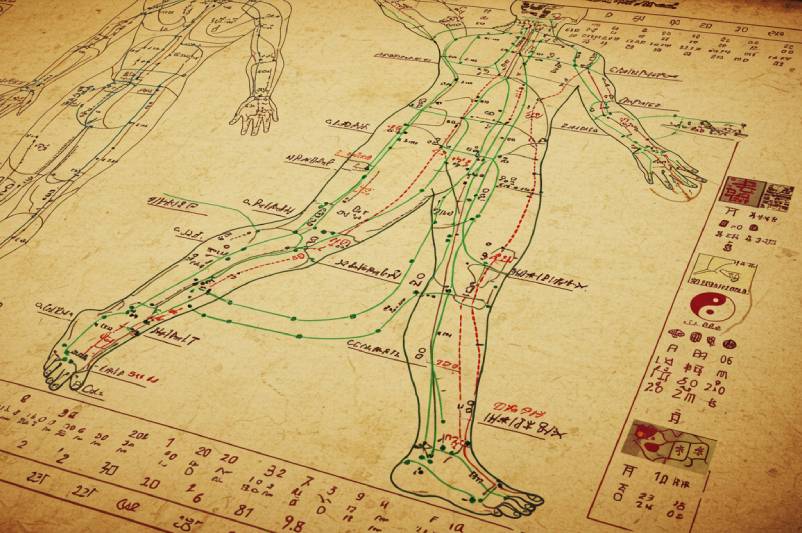Are you struggling to lose weight despite eating less? If so, it’s worth exploring whether you’re eating according to your “body type.” In Traditional Chinese Medicine (TCM), different body types require different approaches to weight loss. It also suggests that the issue may not be how much you eat but rather whether you are eating in alignment with your body constitution. By identifying your body type and making dietary adjustments accordingly, you can achieve sustainable weight loss and improve your overall health.
TCM Weight Loss: Body Type First
Traditional Chinese Medicine (TCM) emphasizes “body type,” believing that the causes of obesity vary from person to person. Different conditioning methods are needed for different body types. According to TCM, there are five distinct body types, each with unique characteristics and weight loss challenges.
These types are identified based on lifestyle, and underlying health conditions. It’s common to have a mix of two or three types, which is why personalized diagnosis and treatment are crucial.
TCM 5 Body Types
1. Water Retention Type
Characteristics:
- Swollen lower body, especially legs and feet that feel heavy or jiggle.
Causes:
- Often results from a diet high in salty and processed foods, prolonged sitting, and consumption of cold beverages, leading to the accumulation of dampness.
- Foods that help eliminate excess water and improve digestion, such as:
- Winter melon, corn silk, barley, red beans, and other foods that promote diuresis and reduce swelling.
- High-potassium vegetables like water spinach, broccoli, and spinach.
- Avoid salty and oily foods.
2. Stress Type
Characteristics:
- Broad shoulders and back, with an inverted triangle or apple-shaped body.
- Fat easily accumulates in the abdomen.
Causes:
- Often linked to chronic stress and anxiety, leading to high cortisol levels that disturb metabolism and immune function.
What to Eat:
- Foods that relieve stress, such as:
- Green foods like mung beans, celery, loofah, and kiwi.
- Herbal teas like peppermint and rose tea to improve blood circulation and reduce stress.
- Healthy proteins rich in tryptophan, which boosts serotonin (the “happy hormone”), including tofu, eggs, milk, and cheese.
- Green leafy vegetables and whole grains.
- Avoid sugary and processed foods.
Lifestyle Tip:
- Sunlight exposure helps regulate cortisol levels by promoting melatonin and serotonin production.
3. Overeater Type
Characteristics:
- Cravings for salty, oily, and sweet foods.
- Strong appetite, often unable to control food intake.
Causes:
- Prone to overeating and frequent hunger due to blood sugar fluctuations.
- Foods that help curb cravings and regulate digestion, such as:
- Bitter melon to reduce internal heat and improve appetite control.
- Drinking water with chia seeds or psyllium husk 30 minutes before meals to increase satiety.
Lifestyle Tip:
- Eat slowly and chew at least 20 times per bite to enhance satiety and improve digestion.
- Eat smaller, more frequent meals to control hunger and portion sizes.
4. Qi and Blood Deficiency Type
Characteristics:
- Fatigue, pale complexion, hair loss, brittle nails, and feeling cold easily.
- Often seen in postpartum women or those with poor dietary habits and low energy.
Causes:
- Menstrual irregularities, postpartum weakness, and other factors leading to insufficient Qi (vital energy) and blood.
What to Eat:
- Nutrient-dense foods that nourish blood and boost vitality, such as:
- Dark-colored foods like black fungus, kelp, and spinach.
- Red beans, purple rice, and black beans.
- Red dates and sweet potatoes.
Extra Tip:
- Consider American ginseng tea, but avoid over-consuming ginseng to prevent adverse reactions from over-supplementation.
5. Hormonal Imbalance Type
Characteristics:
- Extreme fatigue, poor complexion and difficult-to-heal pimples.
- Irregular menstrual cycles.
Causes:
- Underlying conditions such as hypothyroidism or polycystic ovary syndrome (PCOS) can contribute to hormonal imbalances.
What to Eat:
- Foods that support hormonal balance and improve circulation, such as:
- Foods rich in omega-3 fatty acids, like fish, chia seeds, and walnuts.
- Cruciferous vegetables like broccoli and cabbage to support liver detoxification.
- Herbal teas like spearmint to help balance hormones.
Lifestyle Tip:
- Maintain a consistent sleep schedule and manage stress to support hormonal health.
From a TCM perspective, understanding your body type is crucial for achieving successful weight loss. By following the dietary recommendations and tips outlined in this article, you are one step closer to reaching your weight loss goals. It is always advisable to consult a healthcare professional, registered dietitian, or TCM physician to determine your body type and create a personalized weight loss plan.

